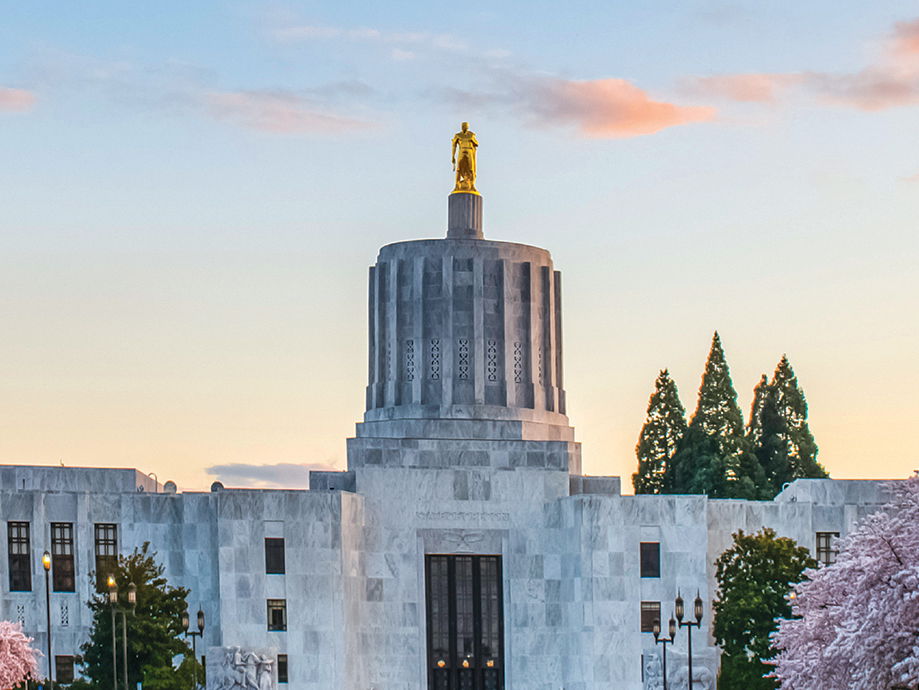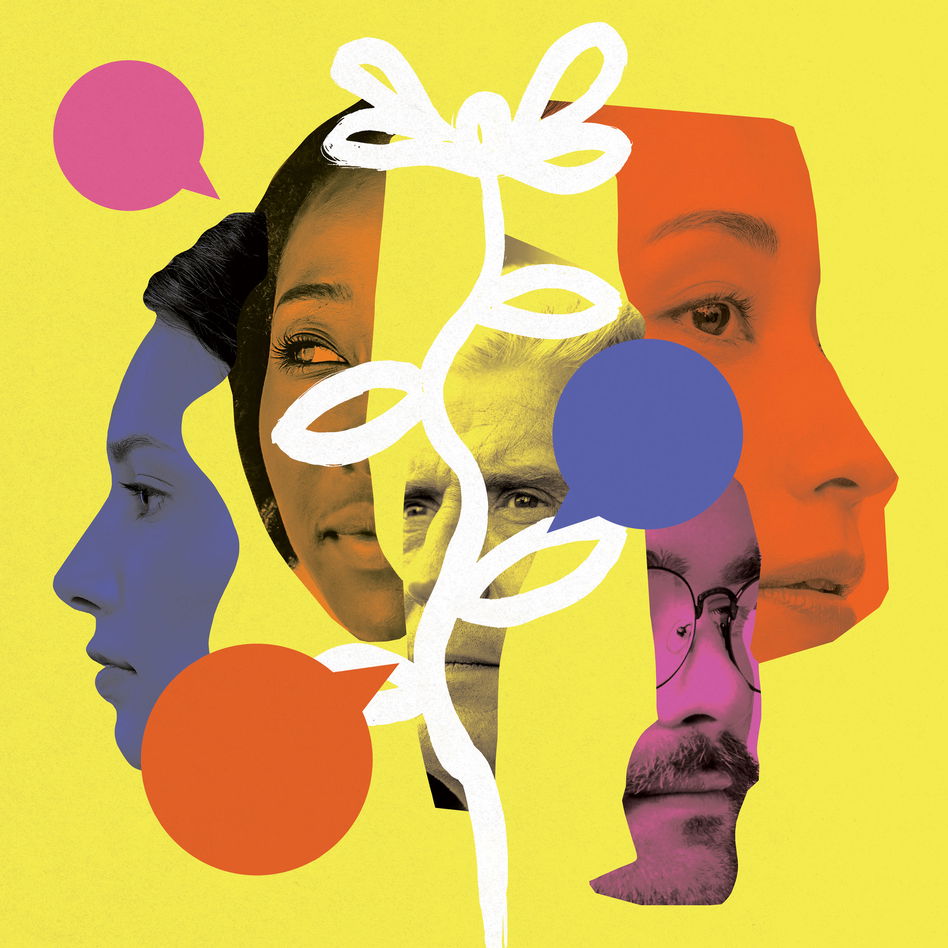

Willamette's Salem campus is located steps away from the Oregon State Capitol.
Real conversation is beautiful, necessary, and within our reach. And learning to hear all sides is one of the most important skills each of us can develop. (Illustration by Franziska Barczyk)

When Mira Karthik BA’24 first arrived at Willamette from her hometown in the San Francisco Bay Area, she had a goal to someday work in politics.
“But the only version I knew was filled with polarization,” she says. “I wanted to jump in and fight for what matters to me—and not have to understand all sides. I was interested in my version of the truth.”
Today, Karthik is president of the student body and a double major in politics, policy, law, and ethics and Spanish. She’s as interested as ever in politics, but she’s changed the lens through which she views it. Learning to understand all sides, she now believes, is one of the most important skills an aspiring public servant can develop.
Karthik came to this conclusion through her participation in “The Conversation Project,” a two-semester course for which she now serves as a research associate. The course was created by professors Wendy Petersen-Boring BA’89 and David Gutterman as a way to cultivate conversation across differences.
Petersen-Boring is an associate professor of history, religious studies, and women’s and gender studies. Gutterman is a professor of politics, policy, law, and ethics. Both had noticed a deterioration in conversation in the classroom beginning with the 2016 presidential election. Students seemed hesitant to ask questions and to engage with differing opinions. This mirrored the climate of the country at large during that election and in the years that followed. The divisiveness only deepened during the pandemic, giving way to a level of loneliness that most living Americans theretofore couldn’t have contemplated. Even when the worst of the pandemic subsided, for many people the loneliness and sense of divisiveness did not.
In fact, according to a July 2023 Pew Research study, when asked to describe the state of US politics, Americans chose words such as “divisive,” “polarized,” “broken,” and “dysfunctional.” Research from the Carnegie Endowment for International Peace draws a correlation between polarization and a decline in democracy.

For her part, Karthik noticed in her politics classes that students who’d taken part in “The Conversation Project” were able to “ask more questions, be more present in the space, and interact in ways that are more meaningful and fulfilling. It’s something you bring with you and use in everything you do.”
Beyond politics, there are important reasons to nurture conversation. Much study has been done on the crises of loneliness, polarization, and isolation in the nation today. US Surgeon General Vivek Murthy escalated the dialogue when he released an advisory last year calling on Americans to rebuild social connections. The advisory warns, “Loneliness and isolation represent profound threats to our health and well-being.” He wrote in the New York Times that “rebuilding social connection must be a top public health priority for our nation.”

At Willamette, work to build social connection is frequent and ongoing. Tommy Van Cleave, assistant dean for civic engagement, points to a partnership with the City of Salem’s Center 50+, in which student volunteers coordinate dinners between local senior citizens and the larger Salem community, including students. Terry Sherman BS’25 describes conversations he’s had during these dinners as life-changing. A biology major from Lake Charles, Louisiana, he took part in the dinners as a way to combat isolation. “My mom passed away recently,” he says. “She was isolated and by herself. If you have somebody to watch your back, it makes a huge difference. If she’d had somebody to check in on her every few days or so, it might’ve helped her.”
Rev. I. Pearl Player, who is chaplain, director of spiritual and religious life, and an instructor of religious studies at Willamette, is experienced with difficult and uncomfortable conversations. She’s found that a major barrier to having a lot of conversations—difficult and otherwise—is what she calls “our innate inability to actually listen to each other.” Instead of listening fully, she’s noticed, “we’re listening for keywords while simultaneously forming our response.”
Player advises a different conversational technique. “If we share in such a way that we say to each other, ‘This is my experience,’ then the listener is prepared. Keeping it very close to ‘I,’ as in, ‘This is what I believe,’ versus ‘This is the truth,’ makes it a much more welcoming space.” She teaches about deep listening, a practice of giving attention to one’s thoughts and reactions while staying focused on the meaning of what is being heard. This is in contrast to our default way of listening that is reactive and focused on formulating our response. “The conversation goes slowly, but it goes much deeper,” Player says. “This is where you give space for healing, agreeing to disagree.”